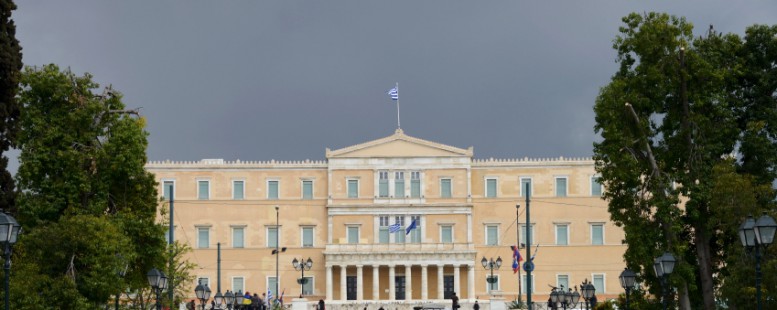Our Opinion: 2015
Greece: a good investment for the brave?

As the Greek crisis trundled along, with all sides desperate to keep Greece in the Eurozone, all sides have made significant sacrifices.
In May 2010, Brussels gave Greece a €110bn loan. Two years later it was the turn of private creditors to accept ‘voluntary’ haircuts.
For its part, Athens has had to agree to large and painful cuts in public spending. Greek voters also did their part by rejecting the anti-austerity Syriza party in two elections in 2012.
I have travelled here regularly for many years and seen anger at Europe, anger at its Government and sheer desperation at the state of affairs. There is now a feeling that the end game is nearing. Greeks feel unable to take any more austerity – taxes, for some, are punishing (even a tiny SMART car come with a ‘luxury tax’), public services are at rock bottom. And yet the Government’s actions simply mean more austerity will be necessary if it is to pay its debts. It is re-hiring public workers laid off, for instance – building an already bloated public sector.
If Greece can’t re-pay its debts, the EU/IMF will need to make concessions or the Grexit is finally on the cards. This is hitting markets.
Amongst all this gloom, Money Week today suggested it might be a good time to consider buying Greek equities.
One sign that negotiations are entering a critical phase is that both Brussels and the IMF are getting tougher.
The attitude of the IMF is particularly telling. Up until now, they have played the “good cop” pushing Brussels to agree a deal that writes down Greek debt by a large amount, rather one than simply postpones things further.
There was even talk in the press a few weeks ago that both Barack Obama and David Cameron were so afraid of the impact of Grexit that they were putting pressure on Angela Merkel to take a softer line.
If that was true then, it’s certainly less true now. On Thursday, the IMF delegation took the dramatic step of walking out of talks with the Greeks, and heading back to Washington. Instead of the usual hopeful talk, they bluntly stated that there were “major differences” between them and Athens “in most key areas”.
As Jonathan Loynes of Capital Economics puts it, this “sent a strong message that the responsibility lies with Greece to make the concessions needed to settle a deal”.
One of the big worries of those in Brussels (and one of the big reasons why Greece is still in the euro) is the big effect on the banking system.
While the various stress tests carried out by the ECB suggest that most banks would be able to deal with a major shock, there are still around 25 banks that considered at risk. As a result, the ECB is likely to pre-empt this by flooding the market with liquidity.
So Draghi’s plan to bring forward QE if necessary shows that top officials are treating a Greek exit as a serious possibility. Indeed, in April he said that Europe is “better equipped” for a Greek exit than it was in 2011 or 2012.
While the two major creditors are taking much harder lines, Athens is also toughening its stance.
According to several reports, a large number of MPs in the ruling party are demanding that Greece follow Iceland, and default. They are in the process of drafting detailed plans for capital controls and the establishment of a new central bank (which would imply a new currency).
Nationalist MPs from Syriza’s coalition partner are rumoured to be on the verge of signing up to these plans.
Even the Prime Minister, Alex Tsipras, seems to have changed his tune. Just a few weeks ago he was insisting that a deal was very close to being agreed. Now he has almost completely changed his tune, and is talking about giving “a big no” to creditor demands and an end to the “memoranda of servitude”.
It should come as no surprise that the recent crisis has been bad for Greek stocks. The Athens stock market is down 45% from its level a year ago.
However, it’s important to realise that this is still much higher than it was at the bottom of the market three years ago. The good news is that Greek economy is in much better shape, with signs of a recovery. And despite the panic over a possible exit, the economy still grew in the first quarter of this year.
It’s also very cheap – with the stock index trading at only two-thirds the value of companies’ net assets. This means that if you are willing to deal with a huge amount of short-term volatility, some exposure to Greece could be a good investment. But not for the faint-hearted!
